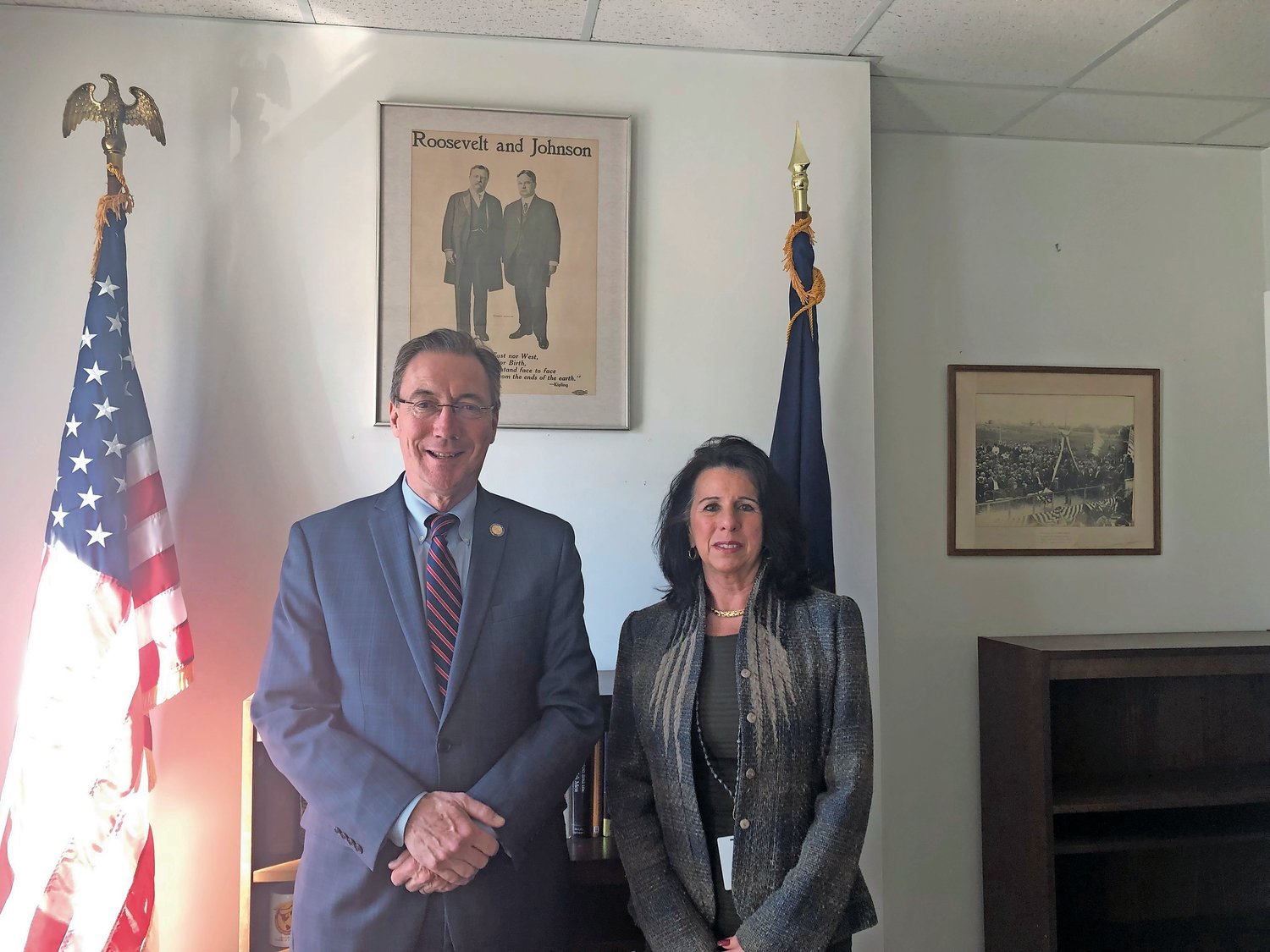Glen Cove schools excel in state budget
Superintendent, parents advocate in Albany
The Glen Cove City School District is part of a collection of districts known as New York’s “Harmed Suburban Five,” alongside Ossining, Port Chester, Riverhead and Westbury. The defining characteristic of this group is that they all receive roughly 50 percent or less of the maximum potential Foundation Aid funding provided by the state, which is significantly lower than the state average of 80 percent. Foundation Aid is money provided to a district by the state that goes toward the district’s many programs.
However, things will be looking up for Glen Cove schools during the 2019-20 school year from a budgetary perspective. Thanks in large part to the lobbying of Superintendent of Schools Dr. Maria Rianna and Sen. Jim Gaughran, a Democrat from Northport, the district will receive just over $9 million in Foundation Aid funding, over 13 percent more than the expected amount of $7.8 million tabulated in the state’s school budget formula at the end of January. The distrcit will now receive 52 percent of its maximum potential Foundation Aid.
New York’s budget formula relies heavily on a district’s perceived wealth when it determines how much Foundation Aid that a district should receive. According to Gaughran, this has been bad for Glen Cove because the disproportionately large amount of wealth in a small collection of the city’s families overshadows the needs of the rest of the city’s residents. This gives Glen Cove an illusion of wealth in the eye of the state, making it seem as though the district does not need as much funding as it actually does.
Rianna said the demographics and needs of children in Glen Cove schools have changed drastically over the last 10 years, something which the state’s budget formula has not taken into account. For example, roughly 60 percent of the district’s students apply for free or reduced lunch due to low family income, far more than Nassau County’s 20 percent. However, due to the city’s vast disparity in wealth, the district has not received a proportionate amount of funding in years.
Rianna explained that the district has also had a steady increase in the enrollment of students from non-English-speaking countries. Programs for these students are especially expensive, as many of them are considered English Language Learners who must take special courses as they adjust their formal education in the United States.
According to Rianna, the needs of Glen Cove’s students currently outweigh the needs of many other districts that receive more funding from the state.
“We really do need to be able to provide the services and the support necessary for our children,” Rianna said. “We want equity. That doesn’t mean it always has to be equal, but we need some equity in the distribution of the foundation funds.”
Gaughran was invited to visit Glen Cove High School. He said the poor state of the building led him to advocate for the district on a state level.
“When I came and toured the high school, that’s when it really struck home to me,” Gaughran said. “I saw all the great stuff the kids were doing, but then [I] saw the issues with the building, which is strictly [due to] a lack of funding over the years.”
During state budget discussions in January, Gaughran and others successfully advocated for the relocation of funds from other departments to education. In doing so, he said, “We were able to focus on plugging some of the real extreme needs on the island.”
“When I spoke on the floor of the Senate,” Gaughran added, “I referred to it as restoring an injustice to Glen Cove for decades that has never been fixed.”
Rianna and two Glen Cove parents joined representatives from the other “Harmed Five” in Albany to advocate for their districts, and their work ultimately proved fruitful. One of those parents was Maria Venuto, who explained that, while there is still more work to be done to receive all the funding Glen Cove schools need, she was generally pleased with the state’s ruling.
“It’s a really good thing that we have so many representatives who care about education, so much that they’re able to get funding for districts like ours,” Venuto said.
Assemblyman Chuck Lavine, a Democrat for Glen Cove, met with Rianna, Gaughran and the Glen Cove parents and decided to help advocate for the district as well. Having moved to Glen Cove in 1980, Lavine said that he has seen the needs of the city’s schools gradually increase, which he said he is pleased is being addressed.
“This was the first year that a real effort was made to try to help all of these districts, and I could not be happier that it occurred,” Lavine said.
While she acknowledged that the increase in state funding is a big step forward for Glen Cove’s schools, Rianna said that it does not have an impact on the need for a bond to go toward improvements. Rather, the increase will go toward instituting a nine-period day at Glen Cove High School because the district can now hire more teachers and create additional classes. According to Rianna, a nine-period day will enable students to take more challenging or helpful courses while guaranteeing that they have a lunch period.

 47.0°,
Mostly Cloudy
47.0°,
Mostly Cloudy 





